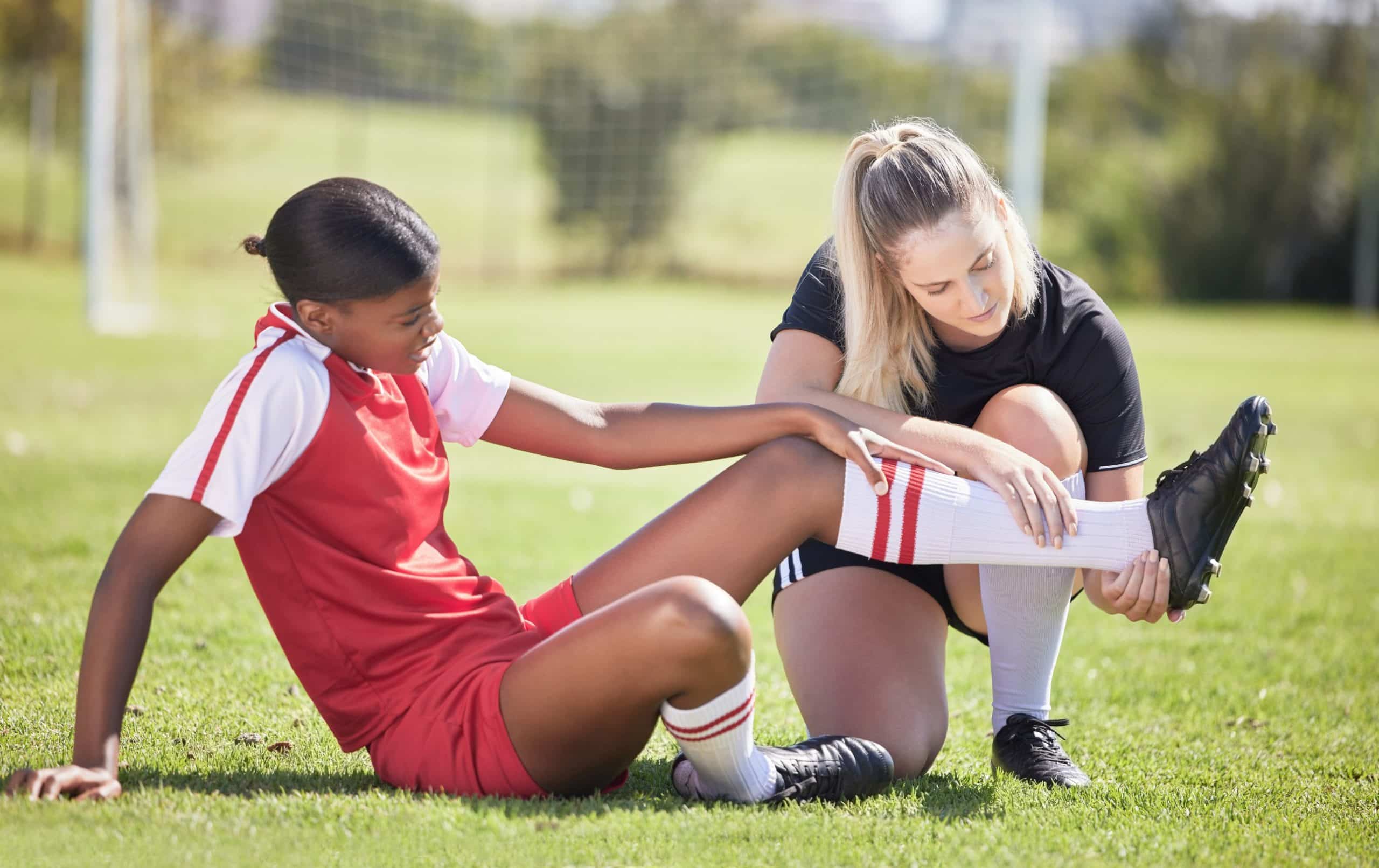Dealing with mental health issues in injured student athletes
- March 14, 2023
- The REACH Institute
- Depression, High-risk children & youth

Approximately 3.5 million child and teenage athletes experience sport-related injuries each year, according to the American Orthopaedic Society of Sports Medicine. When they do, primary care providers (PCPs) need to be aware that the inability to participate in sports could affect their patients’ mental health.
REACH faculty member Joshua Jakum, MD, told a story to illustrate this point. Dr. Jakum received an operative report saying that his patient, a 15-year-old football player, required surgery to repair a dislocated patella. Dr. Jakum was concerned, because this was the patient’s second major joint surgery. Dr. Jakum had not seen this long-time patient recently; the family had used urgent care clinics for required sports participation physicals. Dr. Jakum called the family to ask them to make an appointment.
On examination, Dr. Jakum found a heart murmur. He referred to a pediatric cardiologist. It turned out the patient had Loeys-Dietz syndrome; within months, he required cardiothoracic surgery with a valve-sparing aortic root replacement with graft.
The surgery and recovery went smoothly, but there was a longer-term concern. At the age of 16, this otherwise healthy patient would never play another competitive contact sport.
For most young athletes, sports are a significant part of identity at a time when identity formation is a crucial developmental process. Sports typically provide student athletes with important social outlets, as well as exercise that promotes physical and emotional health. Dr. Jakum pointed out that athletes who experience a career-ending or season-ending injury are likely to feel significant loss and may develop depression or anxiety.
So it was with this patient. Ten months after the operation, Dr. Jakum diagnosed major depressive disorder. He prescribed an SSRI and referred the patient to a mental health counselor.
“Over the next 18 months, I worked to help the patient cope with his loss,” said Dr. Jakum. “A key point was to encourage him to try other physical activity.” The patient started swimming, a competitive but safe sport for his medical condition. Eventually, with the help of Dr. Jakum and his therapist, his depression resolved. Now in college, the patient rides a bike as his major form of exercise and enjoys coaching youth sports.
By contrast, several years earlier, a young athlete in Dr. Jakum’s community named Morgan Rodgers died by suicide after a knee injury ended her lacrosse career at Duke University. Sidelined and isolated from teammates, Morgan fell into depression and anxiety that went unnoticed. Her death inspired her family and teammates to found Morgan’s Message, an organization dedicated to overcoming the stigma of seeking help for mental health concerns and equalizing physical and mental health treatment for athletes.
These stories illustrate why PCPs should remain alert to mental health consequences for patients who present with sports injuries. Staying on the sidelines for several weeks is difficult on a young person who counts on sport for identity, social connections, and future prospects.
“If the recovery period happens at the same time as a season-ending tournament or an invitational event that college coaches attend, that can have a huge impact on the young athlete’s career,” said Dr. Jakum. An injury that ends an athletic career is even more devastating.
Dr. Jakum is himself an athlete in a family of athletes, so he has firsthand awareness of the central role sport plays in athletes’ lives. He also teaches the REACH course Patient-Centered Mental Health in Pediatric Primary Care as part of the Virginia Mental Health Access Program. Like all REACH alumni, he knows how to administer validated screening tools for depression and anxiety, how to refer patients to counseling services when available, and how to administer medications to treat common mental health conditions.
At least as important was his ongoing relationship with his patient and family. “I recognized the medical condition because I knew the patient’s medical history,” said Dr. Jakum. “I was watching for signs of depression and anxiety, so I caught his major depressive disorder. When I encouraged him to find a new sport to enjoy, he trusted me enough to pay attention.”
Dr. Jakum also notes that PCPs can engage in advocacy to encourage the use of mental health services by athletes. He suggests partnering with community organizations that seek to expand awareness and overcome stigma to help injured student athletes get the mental health care they need.
Note: A fuller version of this article first appeared under Dr. Jakum’s byline in the March 2023 issue of Contemporary Pediatrics.
RESOURCES
Haraldsdottir K, Watson, AM. Psychosocial impacts of sports-related injuries in adolescent athletes. Curr Sports Med Rep. 2021;20(2):104-108.
Gonzales G, Young J, Valasek AE. Screening for physical activity and mental health in pediatric sports medicine. Pediatrics. 2022;149(1):215.
Community-based organizations advocating for mental health care for student athletes:
Categories
- ADHD
- Anti-racism
- Anxiety
- Assessment & screening
- Autism
- Child mental health
- Coding
- Cognitive behavioral therapy
- College transition
- Culturally responsive
- Depression
- Eating disorders
- Foster care
- Grief
- High-risk children & youth
- LGBTQIA
- Medication
- Parents
- Patient communication
- Pediatric primary care
- School refusal
- Sleep disorders
- Suicide
- Trauma
- Show All Categories
Register for courses
“Fantastic conference – best continuing medical education I ever attended The six months of followup with help implementing changes in practice is invaluable!”
